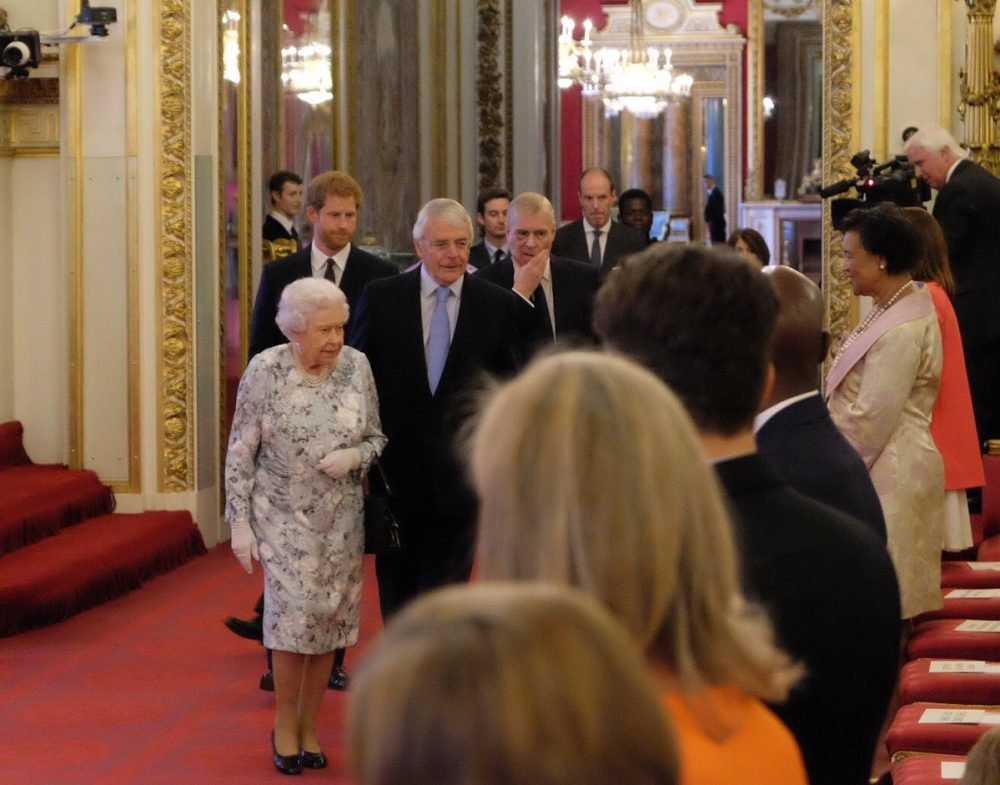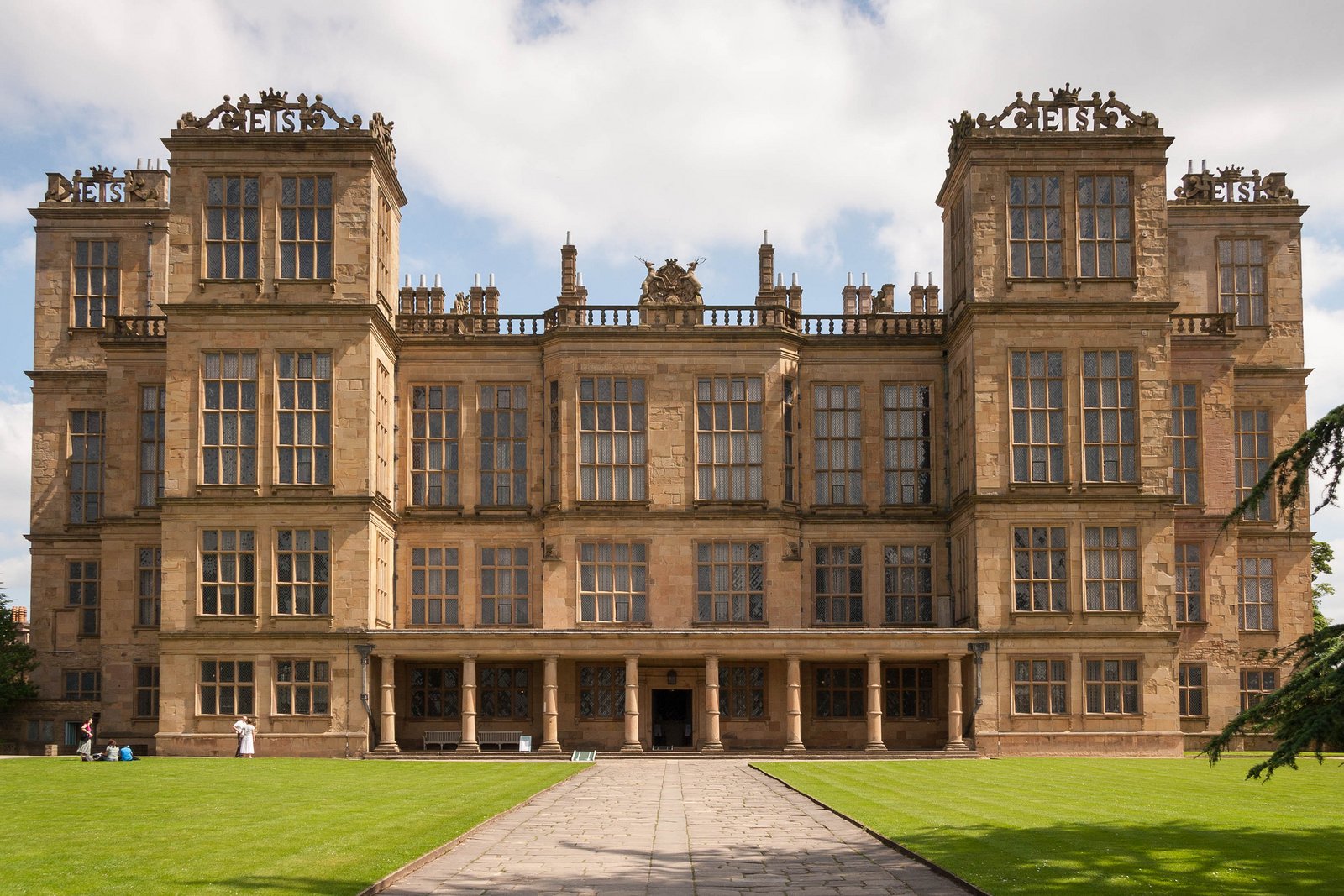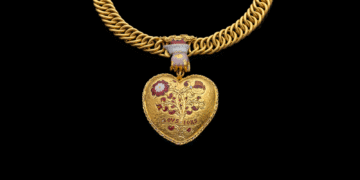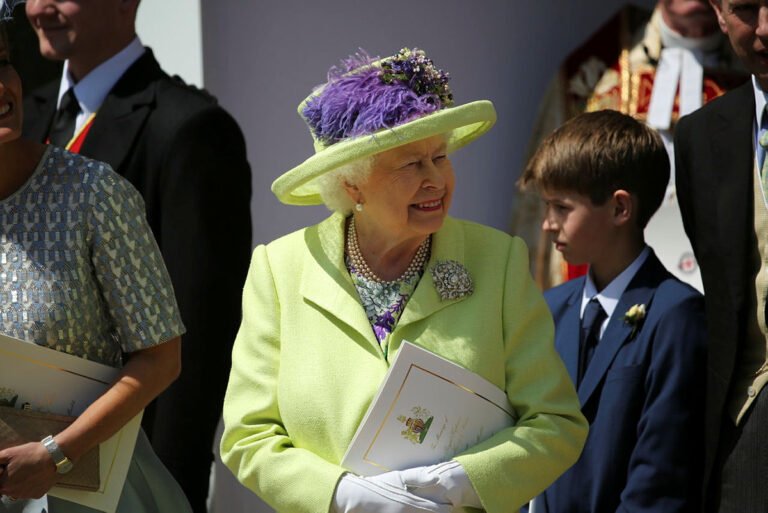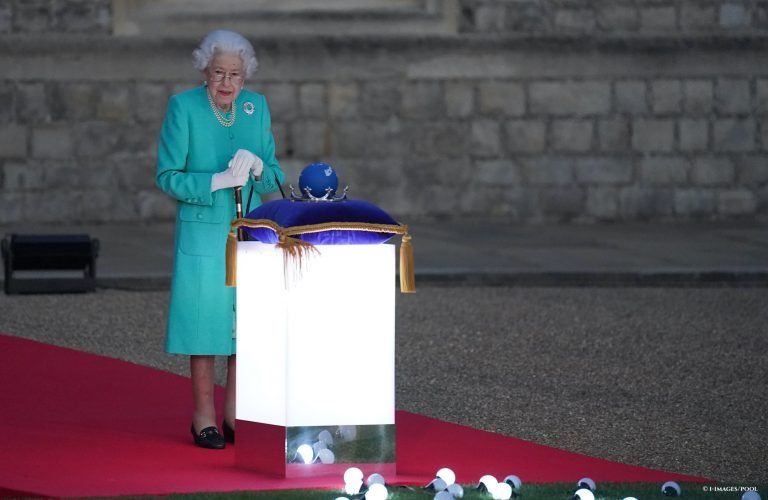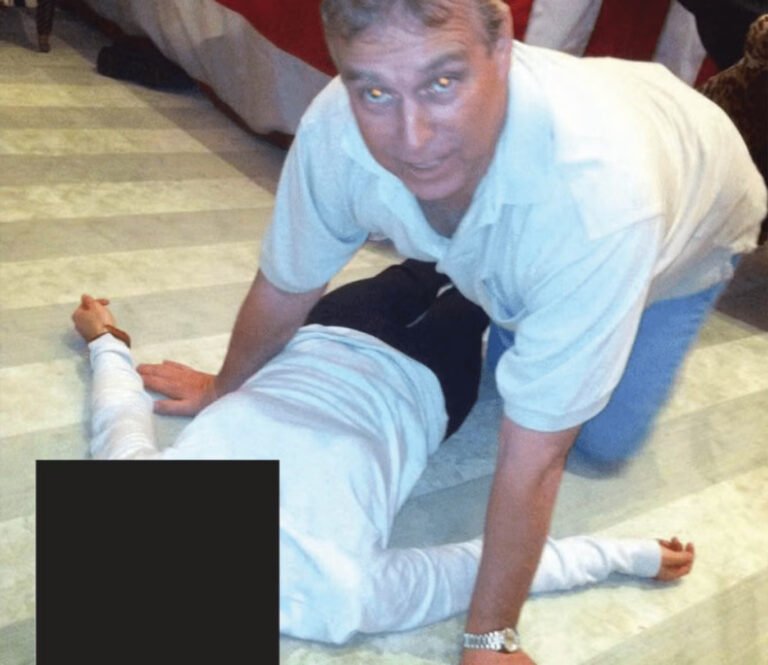The Queen and Prince Harry honoured this year’s Queen’s Young Leaders Awards winners in a ceremony held at Buckingham Palace last night.
Each year 60 young people aged between 18 and 29 are chosen from across the Commonwealth to be recognised as Young Leaders for contributions they have made to their communities. The number of recipients matches the number of years The Queen had been on the throne at the time of her Diamond Jubilee.
The award leaders included young people campaigning on a variety of issues, including cancer awareness in Botswana, organic farming in Cameroon, and anti-bullying in Britain. They were handed their gongs at in Buckingham Palace’s ball room.

The occasion prompted the Prince to reflect that he is perhaps not now considered to be young anymore. In his speech, Harry 31, said, “These young people are already tackling many of today’s most pressing issues and will be the creative minds to take on the biggest challenges we will face in the future.”
“It’s our job – those of us who can no longer hand-on-heart call ourselves ‘young’ – to create a platform where we can listen to the next generation and empower them to act.”
Amongst those listening to Harry’s words were guests including Sir Mo Farah, Dame Tanni Grey Thompson and Liam Payne, plus the audience of BBC’s The One Show, which broadcast live from the Palace.

Prince Harry went on in his speech to pay tribute to his grandmother: “The Queen, who assumed the challenge of leadership at such a young age herself, has shown us all the importance of selfless commitment and service. I know all of us aspire to the standard that she has set for people throughout the Commonwealth and the World.”
The Queen’s Young Leaders Awards were inaugurated in 2014 to mark the Queen’s Diamond Jubilee, set up by by Harry and his brother, Prince William.
For the recipients of the award, drawn from across the 52 nations of the Commonwealth, the ceremony was the climax of a week of events held to help drive their work forward. This included visiting Cambridge University, 10 Downing Street as well as organisations such as the BBC, Facebook and Oxfam.
The award winner from Sierra Leone was 27-year-old Kumba Musa. Kumba is an engineer and felt that there was an under representation of other females in her field. In 2015 Kumba launched Science, Technology, Engineering and Mathematics Women Sierra Leone (STEM Women). The aim of the organisation is to inspire girls to pursue careers in STEM and improve education in the country.
Kumba said: “The reaction from the day we launched has been phenomenal, I had schools calling me and asking us to go and speak to their pupils and parents asking us to speak to their children.
“Just over a year later we now have 58 women on the team. We are giving science a new face. We are breaking the stereotype that it is a male-dominated field and showing that women can do it too.”
Speaking of the Young Leaders week of events, Kumba added: “I am most looking forward to learning from the other young leaders about their projects, how they work with their teams and the impact they have in their communities. I always ask them ‘What are you doing? Why did you do it? How are you doing it?’
“Because when I listen to how they do whatever they are doing, even though it might be very different to my work, I can learn something from them. It also makes you feel ‘I am not alone’. We are all doing something to help our community.”
The British winner was Alex Holmes, 28; he suffered bullying at school, being one of the only mixed race pupils. To help solve the problem Alex created a network of anti-bullying ambassadors when he was 16. He is now head of anti-bullying at the Diana Award, which works at thousands of schools cross the UK.
Following Prince Harry’s speech, he and The Queen joined Prince Andrew and former Prime Minister Sir John Major for a group photograph with the award recipients; The Duke of York is active in the areas of entrepreneurship and STEM.
After the ceremony, Prince Harry attended the Awards Dinner at Australia House.

